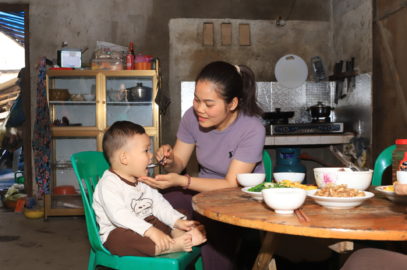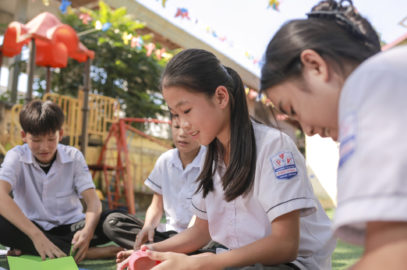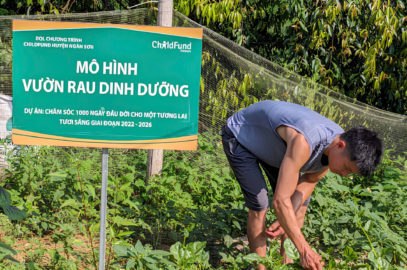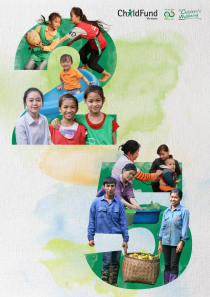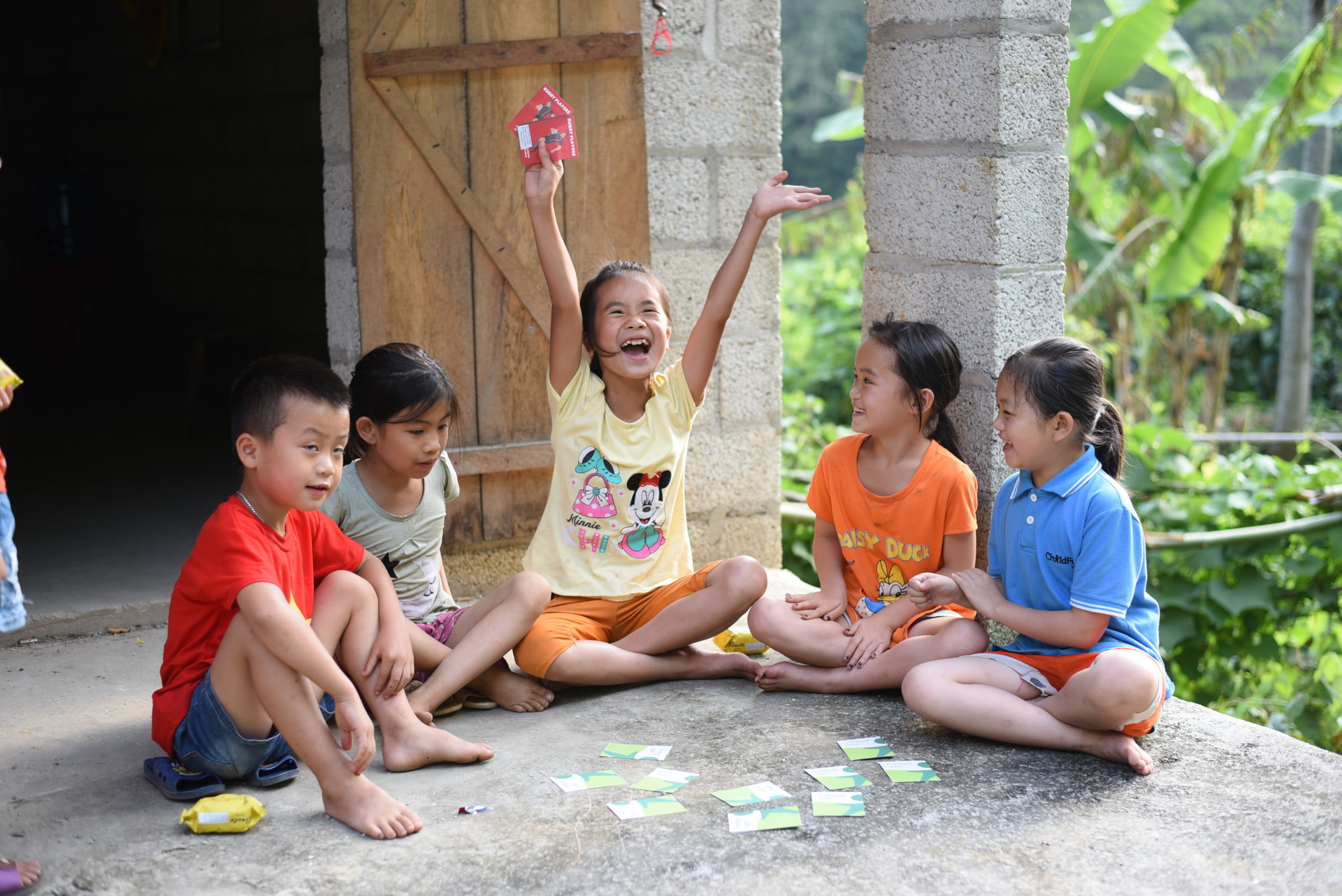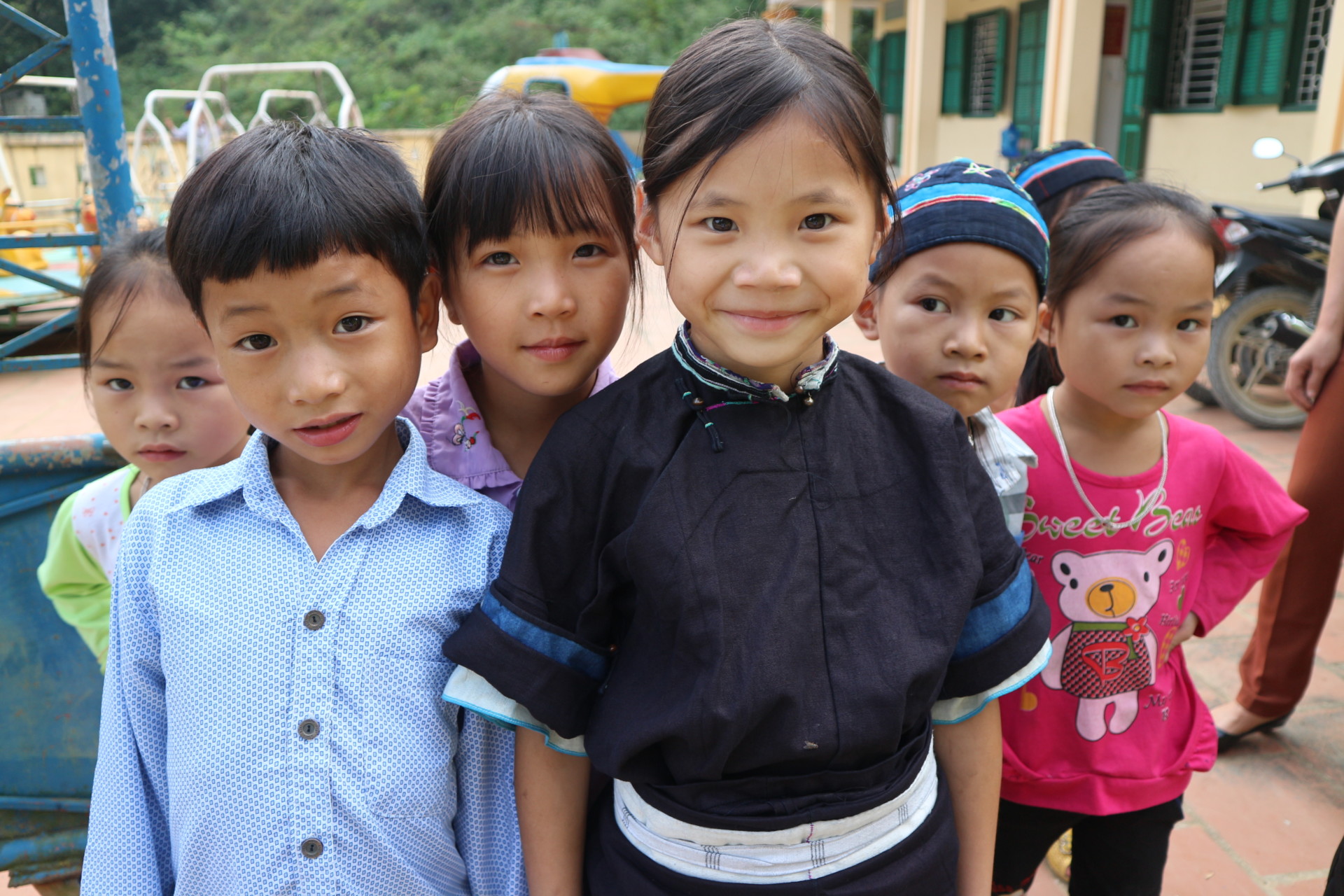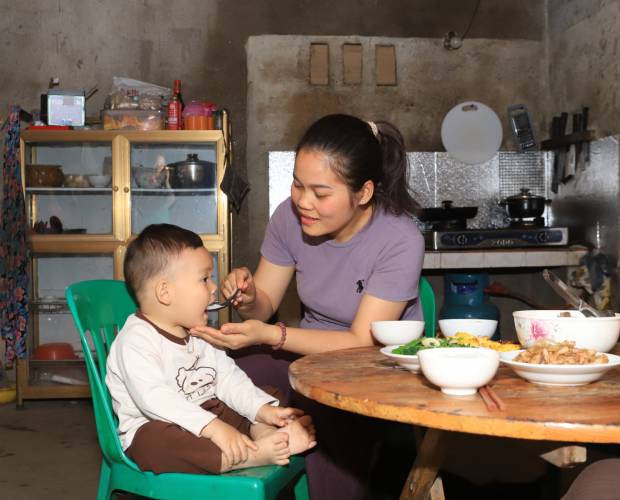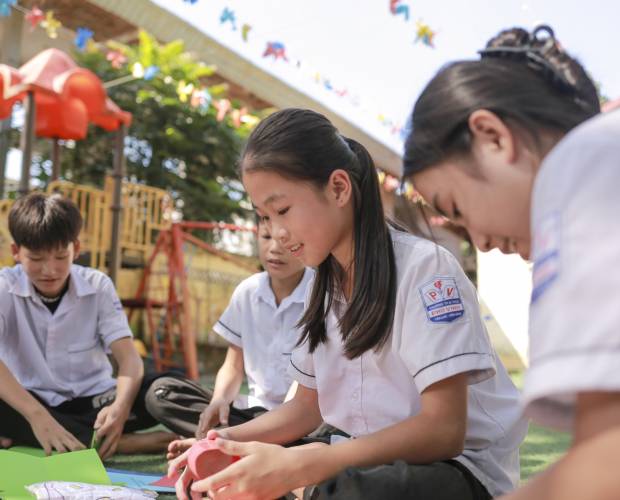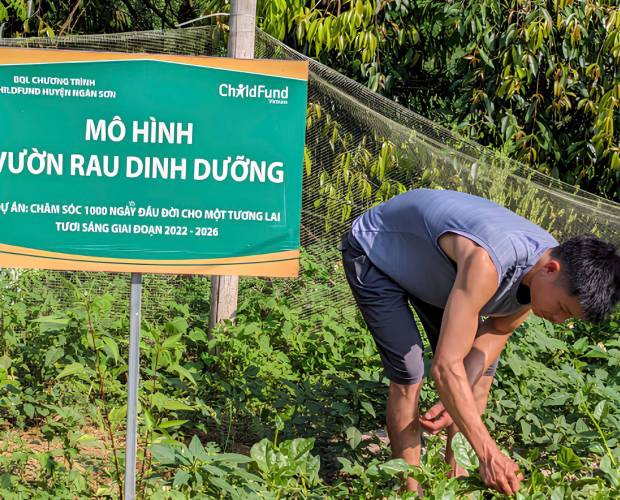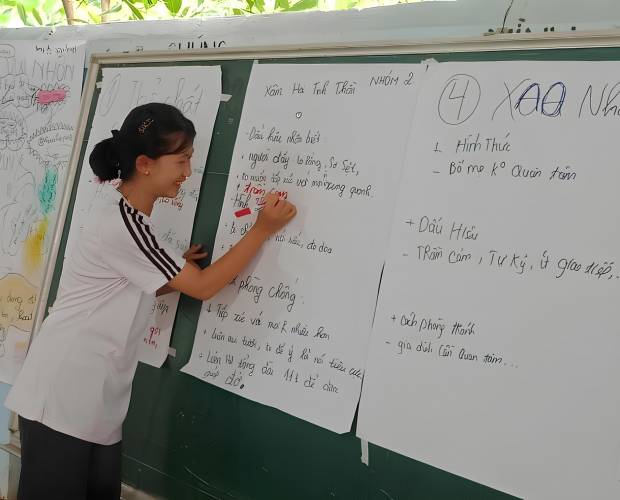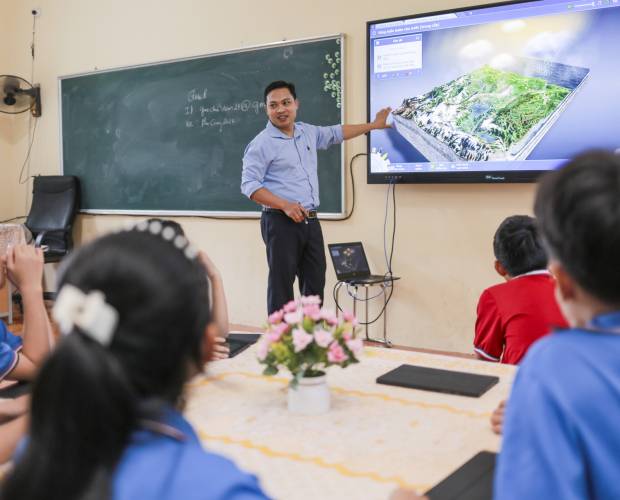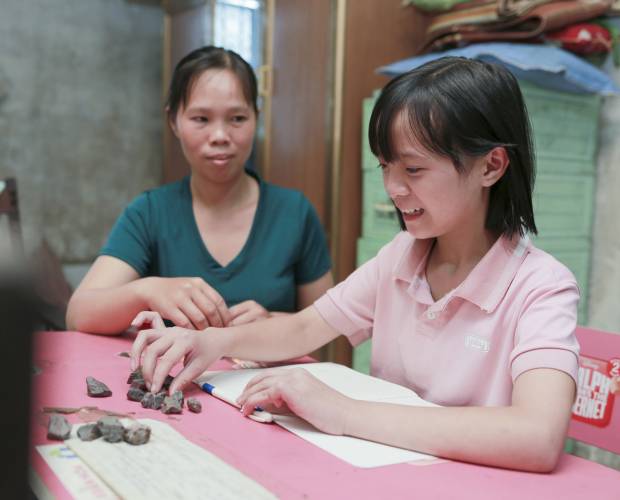PRESS RELEASE
CHILDFUND VIETNAM SUPPORTS COMMODITIES TO MORE THAN 27,000 CHILDREN AND FAMILIES IN RESPONSE TO THE COVID-19 PANDEMIC
Given that the pandemic is occurring unpredictably, from April 17th to 23rd, ChildFund Vietnam has catered commodities to more than 27,000 children in the project areas in Cao Bang, Bac Kan and Hoa Binh provinces.
The commodities distribution is scheduled for two phases. The first phase gives away more than 90,000 masks and 44,900 soap bars to the local children and their families; more than 8,000 bottles of water disinfection (500ml/bottle), 375 kilogram of chlorine B disinfectant powder and 1,500 phone cards (each is worth VND 200,000) and 700 sets of protective suit to the local health officers. In the second phase, more than 23,000 individual water bottles will be delivered to children when they return to schools.
Ms. Nguyen Thi Bich Lien – the Country Director of ChildFund Vietnam, has shared: “Children are highly prone to be affected by the Covid-19 pandemic. In ChildFund, we always consider children, their families and the community where they live as our top priorities.
ChildFund is working with the authorities across governance levels to carry out communication activities and to response to the epidemic within the scope and capabilities of both the organisation and its local partners. We are committed to working together with the government to come over this pandemic. At the moment, more than ever, under such a tough circumstance, we do expect donors to remain your support to the children and those affected by COVID-19 who have been lack of basic conditions and needs.”
The emergency assistance in response to the Covid -19 pandemic in Vietnam is a part of the building strong and resilient communities in the northern provinces. Currently, ChildFund is working closely with our partners in the project areas as well as related ministries and agencies to support the prevention of the Covid-19 epidemic and to prevent the spread of viruses in the community. Also, we share accurate information with children and families during school closures, provide health and hygiene support comodities for schools and health facilities, health officers, children and their family in order to reduce the impact of the disease on children’s access to health, education and social services.
ChildFund supports the Government in Vietnam’s approach and believes in the strength made of both the whole society and the government relevant to the response to and prevention of the Covid-19 outbreak, helping minimise any risks faced by vulnerable people and economies.
Please find out at www.childfund.org.vn or www.facebook.com/ChildFund.Vietnam for more information related to the Covid-19 pandemic, including the relevant guidelines for children, families and schools.
Media contact:
Ms Nguyen Thi Kieu Trang,
Communications Manager
ChildFund Australia’s Representative Office in Vietnam
Level 5, Vinafor Building, 127 Lo Duc Street, Hanoi
Mobile: 0904879991
Email: trangnk@childfund.org.vn
www.childfund.org.vn
About ChildFund Vietnam
ChildFund Vietnam is the representative office of ChildFund Australia – an independent and non‐religious international development organisation that works to reduce poverty for children in developing communities.
ChildFund began working in Vietnam in 1995 and works in partnership with children, their communities and local institutions to create lasting change, respond to humanitarian emergencies and promote children’s rights. Projects are implemented across the northern provinces of Bac Kan, Cao Bang and Hoa Binh, where the majority of people are from ethnic minority groups, often the most vulnerable or marginalised sections of the population.
With a focus on education, water and sanitation, sustainable livelihoods, child rights and child protection, food security, and maternal and child health, including HIV prevention, ChildFund Vietnam also prioritises building the resilience of young people, by giving children and youth the opportunity to take part in sports, vocational education and life skills training, and supporting their participation in local decision‐making processes.
